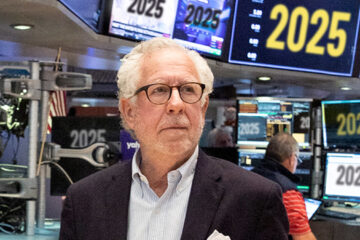Starbucks (SBUX) has been on a mission to pick up the pieces after its sales took a tumble for several financial quarters last year.
In Starbucks’ latest earnings report, the coffee chain’s comparable store sales in the U.S. declined by 6% year over year during the fourth quarter of 2024, contributing to a 3% year over year decline in its total revenues.
💰💸 Don’t miss the move: Subscribe to TheStreet’s free daily newsletter💰💸
The shrinkage in sales comes after Starbucks faced a boycott over alleged political alliances in the Gaza war and suffered sharp criticism from customers for hiking its menu prices.
Related: Starbucks slams the brakes on a menu change customers despise
In the midst of controversy, Starbucks hired Brian Niccol, former CEO of Chipotle, as its new CEO in September last year.
Niccol vowed to “fundamentally change” Starbucks’ strategy to “win back customers” and has since rolled out a plethora of changes in U.S. stores. This effort has included simplifying the menu, pausing price increases, removing the upcharge for nondairy milk customizations, and aiming to deliver orders to customers in “four minutes or less.”
Starbucks customers may not like the latest in-store change
Now, Starbucks has unveiled another major change in its U.S. stores, and some customers may not be too happy about it.
Starbucks has just ended its open-door policy, which allows non-paying customers who enter its stores to hang around, take a seat, or use the restroom.
According to the company’s new code of conduct, posted on its website, customers will now need to make a purchase to enjoy those privileges.
Augusta, Georgia, Starbucks Coffee, inside busy with customers.
Jeff Greenberg/Getty Images
“We want to ensure our spaces are prioritized for use by our customers,” said Starbucks in its code of conduct. “Our Coffeehouse Code of Conduct is something most retailers have and is designed to provide clarity that our spaces – including our cafes, patios, and restrooms – are for use by customers and partners.”
Starbucks’ open-door policy was first introduced in 2018 after it was accused of racial bias when a viral video showed two Black men being arrested at one of its stores in Philadelphia for “trespassing.”
An employee at the store called the cops on both men, who were sitting in the store waiting to meet up with a friend, after they asked to use the restroom. The employee stated that the facilities were only for paying customers and told them to leave, but both men refused.
Related: Starbucks makes desperate move to win back employees
Starbucks’ new code of conduct also explicitly states that the coffee chain will not tolerate discrimination or harassment, outside alcohol consumption, panhandling, smoking/vaping, drug use, abusive/threatening language, misuse of spaces, or disruption in its stores.
“We will ask anyone not following this code of conduct to leave the store and may ask for help from law enforcement,” said Starbucks in its code of conduct.
Starbucks employees have flagged safety issues in stores
The move from Starbucks comes at a time when the coffee giant is facing a strike from over 5,000 baristas at 300 of its U.S. stores, which started last month.
More Labor:
Microsoft exec sends stern warning to staff about return to officeAmazon’s new return-to-office mandate is starting to backfireBoeing delivers hard-nosed message to employees amid strike
The striking workers are represented by the Starbucks Workers United union, and they are protesting “to win fair raises, benefits and staffing, protest unfair labor practices, and resolve outstanding litigation with Starbucks,” according to the union’s website.
Starbucks Workers United is also advocating for workers to have more protections that ensure their safety in stores. The union’s website proposes “protections against racial harassment and bigotry from customers” and “a process to fix safety issues at our stores through a joint safety committee of workers and managers.”
In 2022, Starbucks closed 16 stores across the country due to safety issues such as drug use, violence, and other disruptive behavior.
Related: Veteran fund manager issues dire S&P 500 warning for 2025


